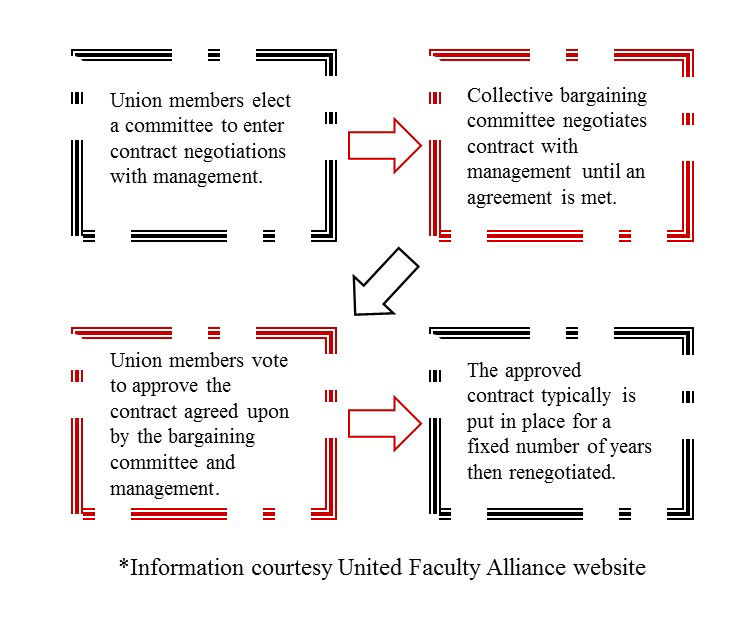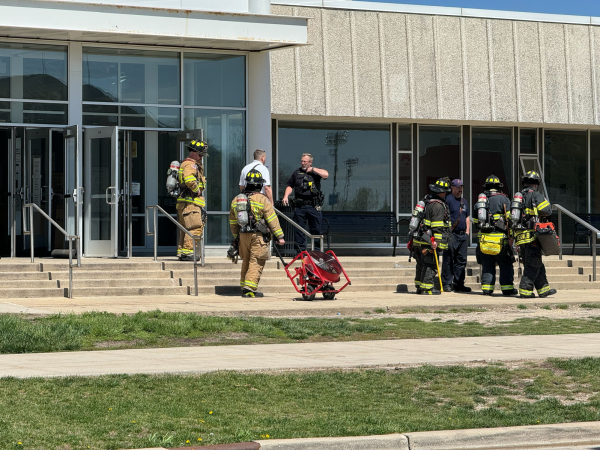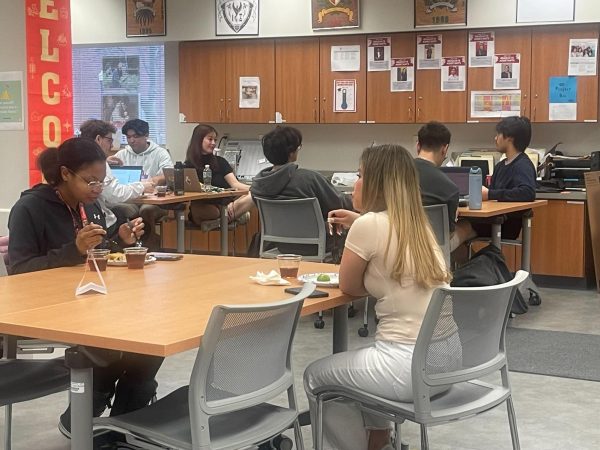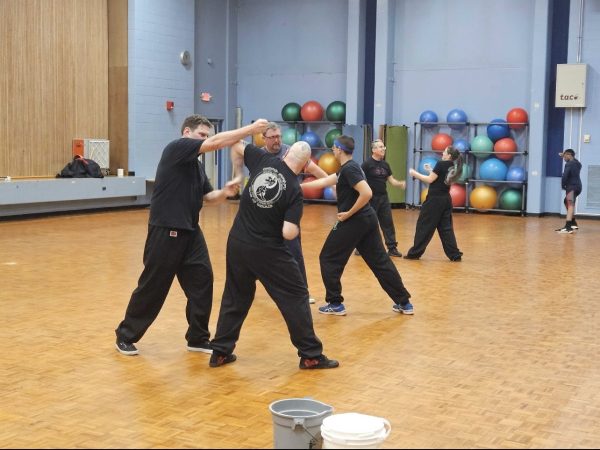Faculty Alliance moves to build negotiations
April 3, 2017
The United Faculty Alliance is taking steps to begin collective bargaining with the hope that negotiations will begin as soon as this month.
The United Faculty Alliance is a union for tenure and tenure-track faculty members that was certified by the Illinois Labor Relations Board this past June. The group is affiliated with the Illinois Federation of Teachers, a union representing about 103,000 education and public service professionals in the state, and the American federation of Teachers, a national union representing 1.6 million members. One service offered by the organizations is assistance with contract negotiations.
Union members have elected a bargaining team that will enter negotiations with NIU officials. When a contract is agreed upon, union members cast a vote to approve or deny the contract. Simon Weffer, chapter representative to the local and associate professor of sociology, said he is unsure of when this final vote will take place, but negotiation training for the bargaining team and executive team has begun. He said the time it takes to finish the process depends on how long bargaining and negotiations take.
“[We want to discuss] pay raises and the lack that we’ve had,” Weffer said. “We want to make sure there’s a clear and transparent grievance process. We want to make sure potential increases in health care costs are dealt with equitably. We want to make sure tenure will be maintained, and we’d like to try and establish some equity for people across colleges.”
Weffer said there has not been a pay increase for faculty since 2012. The alliance is looking to increase all faculty’s pay so they will want to stay at NIU.
Union Vice President Rosemary Feurer, associate professor of history, said her role includes organizing and communicating with department representatives. She said the Demand to Bargain, a request to start negotiations, was issued on Feb. 28. NIU officials sent a validation saying they received the demand on March 6.
Feurer said the validation sets ground rules for the negotiation process for NIU and the union. She said negotiations could take anywhere from a few months to a year, depending on how much they are able to agree on. She said strikes can typically be avoided, and members hopes to start the negotiation process in early April.
“The big issue will be wages and how much we can do to help the university see that we need to have wages that are [comparable] with other universities,” Feurer said. “That will keep faulty here and [ensure they] want to stay.”
Feurer said grievance procedures and the addition of more full-time faculty positions are likely to be brought up in negotiations, as well. She said she thinks students are better served with a full-time faculty and are negatively affected when students are in larger classrooms, due to lack of faculty.
“The other issue that faculty are really concerned with is ensuring that we continue to have full-time faculty,” Feurer said. “We think students are better served with full time faculty and we are fighting for keeping those positions. It can’t be [done] directly through the [bargaining] process, but we work on that issue.”














